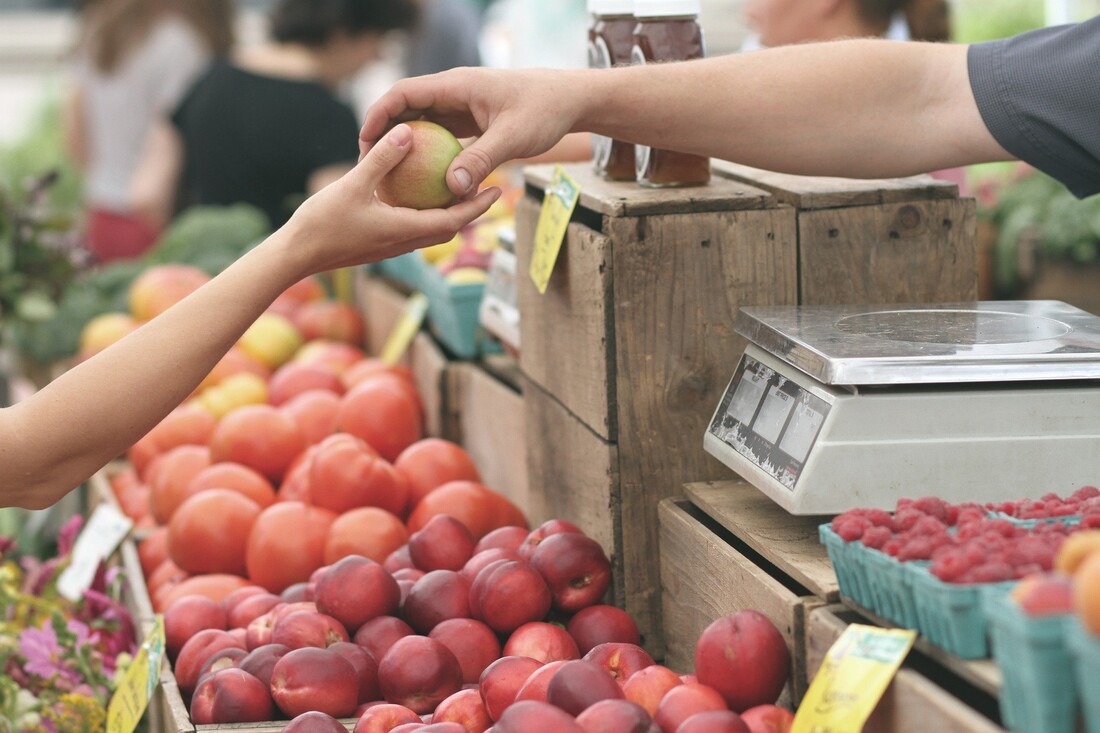|
By: Lela Hopper, OHEA Student Member Individuals need the best of both worlds when purchasing local foods, here's why. During a previous summer, my family signed up for a community supported agriculture (CSA) box. The summer consisted of picking up a small box of food once a week at a local meeting spot. The contents of the box came from a 100 km radius from our house. We didn’t know what we were getting each week, and it was interesting to talk to the farmer and learn how to cook and store these new foods. The box contained seasonal vegetables, fresh herbs that we could plant, and a variety of canned products like pickles and beets. This experience opened my eyes to the possibility of eating local and my family continues our subscription every summer. But is this a sustainable option? Comparing local to global foods, there is a possible reduction of greenhouse gas emissions, but it depends on the mode of transportation. In one case, it would produce less emissions for a truck to drive two hours than 20. On the other hand, shipping for 20 hours on a boat would produce less emissions than 20 hours by truck. So, on its own buying local cannot be the only solution for sustainability. From an environmental standpoint, we are constantly vulnerable to changing climates in the Northern regions and our temperatures do not reach the proper conditions to support some crop development. Imagine growing bananas in Thunder Bay? Also, if local farms are not efficient and cannot control their greenhouse gas emissions, then should we be supporting this? These are points that we must consider for local food systems. So, what is the best option? To have an entirely sustainable food system, we must make it a “best of both” worlds. Large farms are beneficial because they are more efficient and produce a cheaper product. We can import foods that cannot be grown locally, adding variety to our diets. We also rely on global food systems to feed a global population. So if we only relied on local food systems, many would go hungry. Having local systems available to consumers would be beneficial if there was a disruption in the global food system. If we only relied on a global food system, many would be at risk. From a health perspective, when farm produce travels far, items have to be picked at a pre-ripened stage, potentially impacting freshness, taste and nutrient content. When you support local businesses, there is a possibility for them to invest profits back into the community benefiting many. As well, purchasing global imports supports trade agreements between Canada and other countries, contributing to the global economy. To have a resilient food system, we must consider a combination of both local and global production. About Lela Hopper
Lela Hopper is currently in her third year of a Honours Specialization in Nutrition and Dietetics at Brescia University College. Lela is from a small town called Lively, Ontario, about seven hours north of London. She has always had an interest in the field of nutrition as she is a Type 1 diabetic and has Celiac's disease. These are her motivators. They drive her to learn more and excites her to teach others. After graduation, she hopes to incorporate dietetics and human ecology.
0 Comments
Your comment will be posted after it is approved.
Leave a Reply. |
The Ontario Home Economics Association, a self-regulating body of professional Home Economists, promotes high professional standards among its members so that they may assist families and individuals to achieve and maintain a desirable quality of life. Categories
All
Archives
April 2024
|
|
Subscribe to our mailing list
|
|
Unsubscribe from our mailing list
|
Copyright © 2023 Ontario Home Economics Association (OHEA). All Rights Reserved.



 RSS Feed
RSS Feed